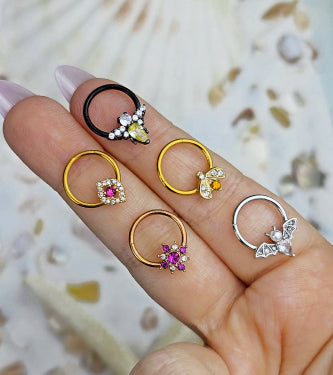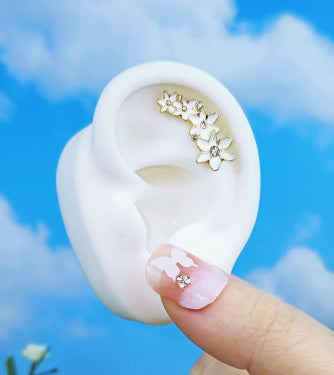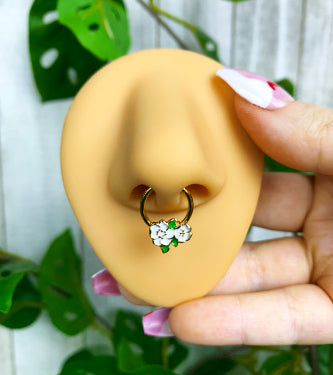Location: This piercing is the only one of its kind that has been successfully performed on multiple persons. It enters the skin underneath the collar bone, passes through the actual body cavity beneath the bone, and emerges on the other side.
Alternate Names: Sub-clavicle piercing, clavicle bone piercing, sub-collar bone piercing, Farscape piercing.
Piercing: Due to the extremely sensitive nature of the underlying anatomy, only a very experienced piercer who has studied the basics of that anatomy should perform a sub-clavicle piercing. Much like regular piercings, the designated entry and exit points will generally be marked and the area will be studied by the piercer to determine the best placement. Because the collar bone itself must be able to be pinched and a needle inserted underneath from one side to the other, certain persons who lack the necessary ability to make the bone “jut out” will be unable to receive a sub-clavicle piercing. While some piercers prefer the use of a curved piercing needle for this procedure, many will use a long straight needle, possibly with a taper.
Aftercare: Because there are many risks associated with this type of piercing, aftercare procedures will vary depending on the type of jewelry, preference of the piercer, and general state of the piercing or stage of healing. As with other piercings, sea salt soaks and cleanses with gentle antibacterial or medical soap are common. Healing is very slow, and for some these piercings will never really heal completely and may need to eventually be removed.
Jewelry: Although some may successfully use a long curved barbell in sub-clavicle piercings, most often they are initially pierced and worn with long pieces of tygon, bioplast, or PTFE. Not only are these materials safe and biocompatible, but the freedom of flexibility puts less stress on the surrounding bodily structures.
Associated Risks: Although improbable, it may be possible to disturb or damage certain parts of the human anatomy if a sub-clavicle piercing is improperly performed, as specific anatomical placement will vary from person to person. Portions of the nerve branches that control movement, sensory interpretation, and general function of the arm run close to the clavicle, though normally deep. There’s also a number of veins and vessels that could potentially be harmed, and even a possibility of puncturing a portion of the lung when pierced too far towards the center of the body.
Prevalence: Although it continues to rise in general popularity, as far as the amount of persons who actually have a sub-clavicle piercing, the number is most certainly extremely low comparative to any other piercing. Due to the dangers associated with piercing into the body cavity, most piercers will actually refuse to attempt the sub-clavicle, even if they have been piercing successfully for several years.



